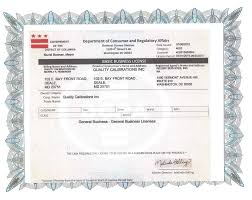
These skills are essential if you wish to become a manager responsible for customer success. They include: Customer-focus, Resilience, and Ability to create relationships with customers. You will also find a wide range of job opportunities in this role. Read on to find out more.
Managerial skills required to succeed with customers
This position of customer success manager has seen a rise in popularity over the past few years. Companies are increasingly hiring them. The job varies from company to company, with some specializing in commercial aspects while others focus on product knowledge and best practices. These skills will be useful regardless of the job title.
Customer success managers need excellent communication skills. They need to be able to communicate effectively with other departments and customers alike. It is essential to be able to identify customer needs and promote the benefits of a product/service. This position will involve daily interaction with customers and working closely with departments and other teams.

Resilience
A key component of a successful business is resilience. It helps people make tough decisions and anticipate the unexpected. And it keeps them calm even in times of high emotions. This trait is also necessary for working well in customer success teams. Vodafone's study revealed that almost 90% of respondents believed that being resilient was essential for their careers.
Customer Success managers are expected to be resilient as they are responsible in managing the customer experiences and improving them. They must have the ability to overcome setbacks and to pivot and adapt to customer needs. This is particularly true when it comes to crisis management, where a team must keep their performance up despite a variety of challenges.
Ability to establish relationships with customers
Building relationships with customers is a key quality that a customer manager must have. It is vital that you understand your customers' needs, and can think on your own feet. You should be following up with potential customers as a manager of customer satisfaction. You never know who they may be searching for the solution to their problem. Managers need to have the ability to build relationships with customers and be resilient. Knowing data from behaviors, buying patterns, and demographics will help you better understand how to best help customers.
As a customer success manager, you must be able nurture relationships with customers that keep them returning to your company. You can do this by developing executive relationships and by managing these relationships at scale. This will ultimately lead to a larger customer base.

Employment opportunities
As a Customer Success Manager, you will be responsible for ensuring that customers have a pleasant experience. This role is responsible for defining the function of Customer Success, developing processes and best practices, and achieving retention and growth objectives. You must have a track record of success and attention to detail for the Customer Success Manager role. You should also have a strong background in working with large, complex organizations. A successful candidate will also be able establish relationships with customers and develop a plan to realize value.
Customer success managers can help companies increase customer retention and upsell new features, which can lead to increased revenue. This role gives them the opportunity to promote their company's image.
FAQ
How much should you charge as a consultant?
It all depends upon what you offer. It doesn't matter if you offer services at no cost. If you're selling products or services however, prices should be determined based on their value.
If you're providing low-quality service, you don’t have anything to offer. Why would anyone pay anything for you?
If you are providing high-quality services, then you could ask for a higher price because people recognize the value you provide. It is possible to offer discounts to clients who order multiple packages.
What is a consultant?
Consultants provide services for others. It's not just a job title; it's a role where you help others achieve what they want from life. You do this by helping them understand their options and helping them make the right choices.
Consultants have the ability to solve any problems or challenges that may arise from projects. Consultants can also offer advice and guidance regarding how to implement these solutions.
Consultants should be able and willing to answer any questions regarding business, technology or finance, leadership, strategy, customer service, legal, management, leadership, management, law, management, law, procurement, legal, marketing, human resources, etc.
What are the advantages of being a consultant?
Consultants are able to pick when and where they want to work.
This means you can work whenever you like and wherever you wish.
You can also easily change your mind, without worrying about losing any money.
Finally, you can control your income and set your own schedule.
Why would you want to hire consultants?
You might need consultants for a variety of reasons.
-
Your organization may have a specific project or problem that needs solving
-
You want to improve or learn new skills.
-
You want to work with an expert in a particular field
-
There is no one else available to handle the task
-
You feel overwhelmed by all the information and don’t know where to begin.
-
You don't have the money to pay someone full time
Word of mouth is the best way to find a great consultant. Ask your friends and colleagues if they know of any trustworthy consultants. If you are already acquainted with someone who works as an advisor, ask them for recommendations.
If you decide to use online directories like LinkedIn, use the "Search People" feature to look for consultants in your area.
How much does it cost for a consultant to be hired?
There are many factors that influence the price of consulting services. These factors are:
-
Project size
-
Time frame
-
Scope and nature of work
-
Fees
-
Deliverables
-
Other considerations like experience level, geographical location, etc.
Statistics
- So, if you help your clients increase their sales by 33%, then use a word like “revolution” instead of “increase.” (consultingsuccess.com)
- According to statistics from the ONS, the UK has around 300,000 consultants, of which around 63,000 professionals work as management consultants. (consultancy.uk)
- On average, your program increases the sales team's performance by 33%. (consultingsuccess.com)
- Over 50% of consultants get their first consulting client through a referral from their network. (consultingsuccess.com)
- 67% of consultants start their consulting businesses after quitting their jobs, while 33% start while they're still at their jobs. (consultingsuccess.com)
External Links
How To
How can I find a good consultant for my business?
Finding a great consultant starts with understanding your expectations. What do you need them to do for your website? You may want them optimizing your site to rank higher for search engines. You might also want someone to help you determine if your hosting provider is in trouble. Once you know what type of services you need, you should start looking at different companies. While there are many consultants that claim to be able provide these services for you, not all of them will. How do you choose the right consultant? Here are some things to consider when picking a consultant:
-
Refer to others. This is the best method to find a consultant. Hire someone you don't know because they're likely to charge too much. You don't want to work alongside someone whose reputation hasn't been established. It's great if you get recommendations from people you trust. You might also be able to find reviews online even if there are no referrals. Check for testimonials or case studies that show how clients have used your services.
-
Ask around. Many people are unaware that hiring a consultant could make a difference. They believe that because they're doing well, they don’t need to make any changes. This is often false. Even if you are seeing great results, it is likely that you have not been keeping up to date with technology and trends. Your business could be missing out if it relies on outdated methods. It is always worthwhile to ask around for recommendations of good consultants.
-
Verify their qualifications. No matter how small your project is, it's important to ensure that the consultant you choose has the necessary skills. Check that they are qualified to complete the tasks and have enough expertise in the chosen area.
-
Find out the type of projects they specialize. This is false. You may need to have specific training or education in certain areas. You wouldn't hire someone who can build a WordPress theme if they aren't experts in Drupal. Graphic design and programming languages are all subject to the same rules. Ask them what types of projects they are most familiar with.
-
Know what they charge. As we mentioned, it is important to know what they charge. However, you don't need to pay too much. Consultants come from all walks of life. Some charge hourly rates while others bill per project. You can save money by knowing upfront exactly what you will be paying.
-
Find out what they offer. Are they willing to provide free consultations? Are they willing to give advice about how to set up your own system or provide other assistance? Is there a guarantee that your site will rank higher after working with them? You can cancel the consultation without penalty if your opinion is not what you wanted.
-
Find out if the company offers discounts for several months or years. Many consultants offer extended discounts for long periods. It is not necessary to commit to an entire year. However, you could still benefit from any deals offered by the consultants.